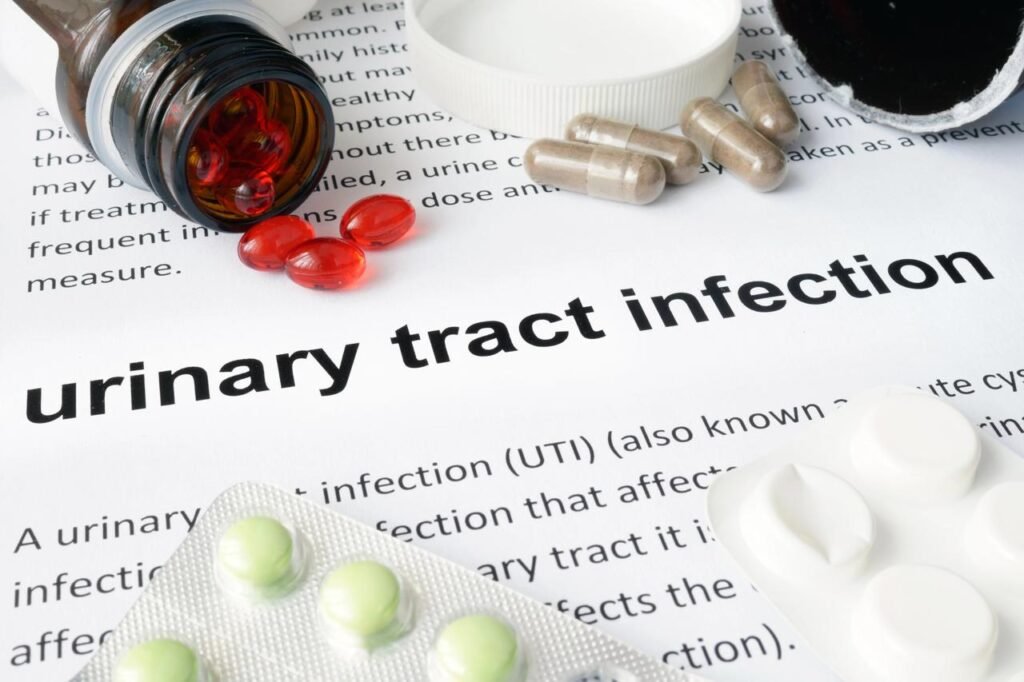How Perimenopause, Kidney function, and Emotional health impact Urinary Tract Infections after 40
Recurrent urinary tract infections (UTIs) in women over 40 are often blamed on bacteria or kidney health.
But what if there’s more to the story?
Hormonal shifts during perimenopause can quietly alter the urinary tract environment. When combined with emotional stress and weak boundaries, the result may be chronic, recurring UTIs. Let’s explore this from a holistic lens using nutrition, homeopathy, and epigenetics.
The role of Perimenopause in recurrent UTIs
- Declining oestrogen impacts the vaginal microbiome and urinary tract lining.
- Reduced protective lactobacilli can create a breeding ground for harmful bacteria like E.coli
- Epigenetic changes triggered by hormonal shifts may influence immune response and inflammation regulation.
These shifts are often overlooked, yet they play a foundational role in UTI recurrence.
Hormonal shifts vs Kidney stress – a two-way connection
- Hormones regulate immune strength, mucosal health, and urinary tract integrity.
- Oestrogen deficiency makes the bladder and urinary tract lining more susceptible to infection.
- Kidneys play a crucial role in filtering toxins, managing electrolyte levels, and supporting hormonal metabolism.
- When oestrogen levels decline in perimenopause, kidney function may become more vulnerable to stress, inflammation, and dysregulation.
- Weak or overburdened kidneys may impair the elimination of excess hormones and toxins, creating a feedback loop that exacerbates hormonal imbalance.
- This hormonal-kidney interplay can manifest as fluid retention, fatigue, heightened sensitivity to UTIs, or difficulty detoxing properly.
The overuse of Antibiotics: a double-edged sword
- Repeated use of antibiotics is a common approach to treating UTIs, but long-term overuse can backfire.
- Antibiotics can disrupt the gut microbiome, weakening immune regulation and oestrogen metabolism.
- This disruption reduces the body’s ability to maintain urinary tract health naturally.
- Furthermore, certain antibiotics can directly affect kidney function, leading to inflammation or reduced filtration capacity.
- A disrupted gut-kidney axis, especially during perimenopause, creates a cycle that perpetuates recurrent infections rather than resolves them.
- Crucially, repeated antibiotic use also impacts mental health. A second course of antibiotics within 12 months has been associated with a significantly increased risk of depression and anxiety. This is due to antibiotic-induced gut dysbiosis affecting the gut-brain axis.
Emotional Boundaries & Psychosomatic links
- In holistic medicine, UTIs are often linked with unexpressed anger or weak boundaries.
- The bladder is symbolically connected to containment and assertion.
- Emotional repression, especially in caregiving women, may manifest physically.
Holistic Healing Pathways
- Epigenetic insights: Check for methylation challenges, estrogenic detox pathways diviations, histamine overload.
- Nutrition: Anti-inflammatory diet, prebiotic-rich foods, potassium-rich foods (parsley, celery), hormone-balancing nutrients, vitamin D, omega-3s and kidney tonics (Hb) or infusions like nettle tea, dandelion root, and celery seed.
- Homeopathy: Tailored remedies addressing both physical symptoms and emotional patterns – Sepia, Lachesis, or Pulsatilla may address hormonal imbalances alongside urinary symptoms. Berberis, Cantharis, or Sarsaparilla for the kidneys depending on symptom picture.
UTIs in perimenopause aren’t just about kidneys or bacteria. By exploring the intersection of hormonal health, emotional resilience, and genetic predispositions, you can move from recurring symptoms to lasting wellness.
References:
- Lee, J. et al. (2020). The Impact of Menopausal Transition on Vaginal Microbiota.
- Sharma, R. (2018). Hormonal Influence on Urinary Tract Health in Midlife Women.
- Russo, M.A. (2021). Emotional Suppression and Psychosomatic Illness.
- Llor, C. & Bjerrum, L. (2014). Antimicrobial resistance: risk associated with antibiotic overuse and misuse.
- Vaziri, N.D. (2016). Microbiome and Kidney Disease: The Gut-Kidney Axis.
- Rogers, J.P. et al. (2021). Antibiotic exposure and the risk of depression, anxiety, or psychosis: A population-based study. Journal of Clinical Psychiatry.

